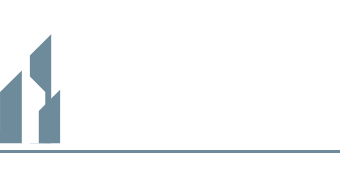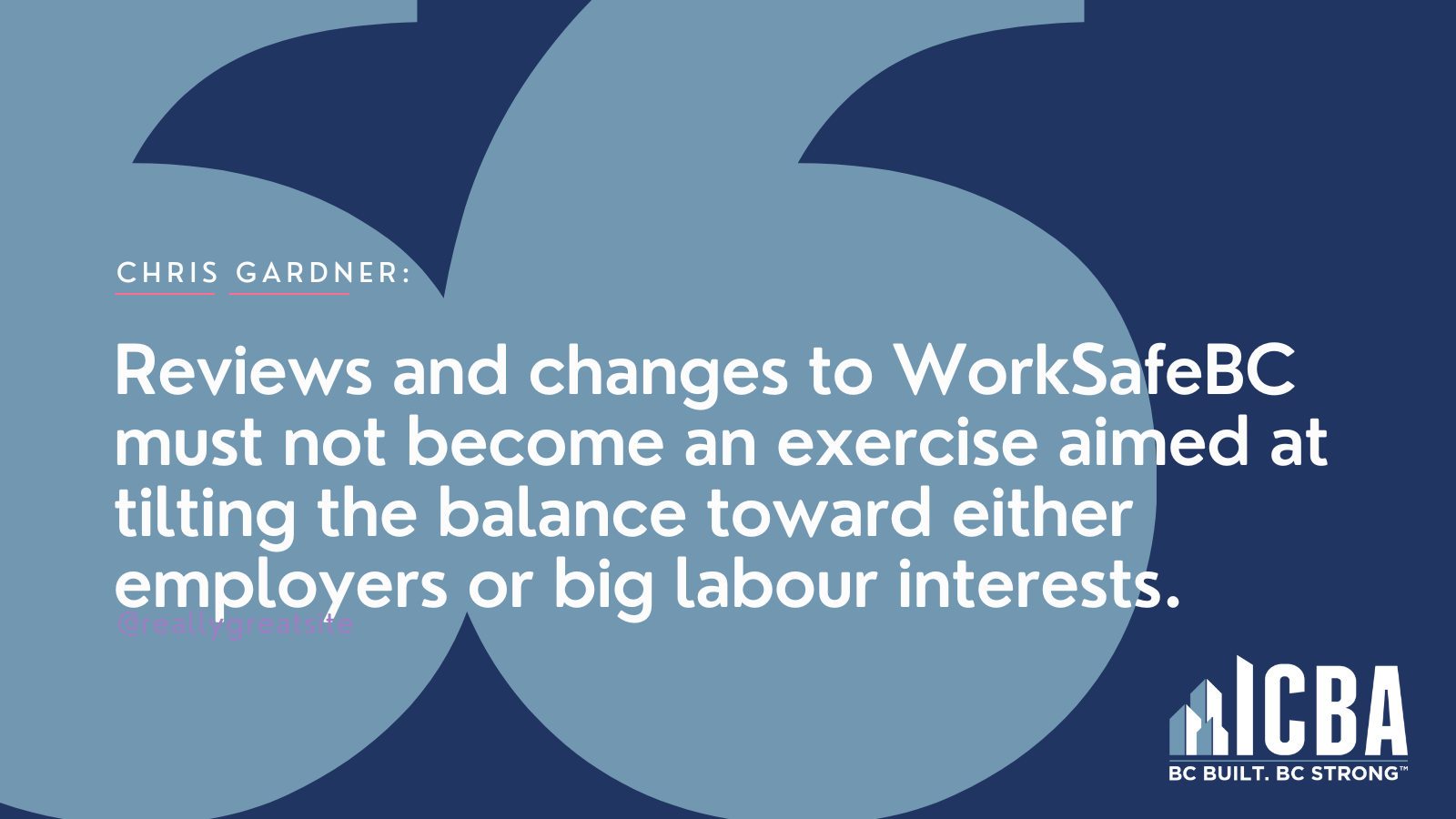The following op-ed by ICBA President Chris Gardner was first published Dec. 21st in the Journal of Commerce.
It’s a well-worn cliché, because it’s sound advice: If it ain’t broke, don’t fix it.
Yet the BC Government, pushed by the BC Federation of Labour, seems determined to “fix” WorkSafeBC without any meaningful consultation with the very stakeholders who provide all the funding for the agency – entrepreneurs, small businesses and company owners.
Earlier this year, the BC Fed put out an op-ed asking that the Government make drastic changes to WorkSafeBC and implement the expensive and confrontational recommendations developed by labour lawyer Janet Patterson. Patterson was commissioned to undertake what the Government stated would be an independent, impartial, and balanced review. What the NDP Government left out was that Patterson is a former lawyer with the BC Government Employees Union and was one of three co-authors of a BC Fed-commissioned report in 2009 that recommended sweeping changes to WorkSafeBC.
With considerations of independence and impartiality conveniently set aside by Victoria, nearly fifty business organizations and trade associations wrote to Patterson in August 2019, raising concerns about her ability to undertake a fair and balanced review of WorkSafeBC. However, after completely ignoring the entrepreneurs and the businesses that fund WorkSafeBC, Patterson tabled a 500-page report that predictably recommended the changes demanded by the BC Fed.
It’s difficult to understand what the BC Fed and Patterson are trying to fix and the risks they are willing to take with a world class workers compensation system. In 2021, only 6 per cent of the workers who interacted with WorkSafeBC rated their experience as poor or very poor – and that number includes those workers whose compensation claims were denied. While not a perfect score, that’s a remarkably high client satisfaction rate.
The very real prospect of significant increases in premiums and over time and the financial stability of WorkSafeBC is now a very real risk. The Business Council of B.C. stated this in stark terms.
“We see a growing risk that future government decisions and actions will drive costs across the system significantly higher,” wrote Jock Finlayson and Ken Peacock in a recent memo to BCBC members. “Looking ahead, the positive picture of stable base rates… won’t persist. Instead, employers should plan for sustained upward pressure on premium rates.”
On Hallowe’en 2022, the NDP Government stunned employers by introducing Bill 41, again with no consultation. The proposed changes will drive up WorkSafeBC costs, eating up excess reserves, and force future base rate hikes. In a letter to BC Liberal MLA Greg Kyllo, Labour Minister Harry Bains pegged the cost of this new law at $1.27 billion!
Who pays, you might ask? Well, it’s every entrepreneur, businessperson and company owner who hires people and meets a payroll.
And this is on top of the Province’s earlier legislation making WorkSafeBC the automatic first payer for all vehicle-related injury claims suffered by workers, moving millions in cost and risk from ICBC to the 263,000 employers and businesses who fund WorkSafeBC.
It may get worse. Among Patterson’s dozens of recommendations, she wants the ability for WorkSafeBC to reconsider any past decision, effectively opening the door for a review of any claim at any time.
That sounds great for labour lawyers like Patterson, but it’s an expensive, logistical nightmare for businesses, workers, and WorkSafeBC itself. Such a change would mean that there would never be any finality for workers or employers.
Patterson also wants to restore the 1990s-era medical services office. All that did in the ’90s was add cost, drive disagreements, increase complexity, delay benefits for injured workers, and contribute to a 20,000-appeal backlog.
Perhaps the most troubling of Patterson’s recommendations is eliminating the requirement that the WorkSafeBC Board and its appellate bodies be bound by policy or precedent.
Put another way, WorkSafeBC could become the Wild West, where any decision could be made for any reason, regardless of what has happened before, or what could happen after. Hard to think of any government system where decisionmakers are not bound by policy and precedent – the foundation of fairness and predictability.
Instead of allowing the BC Federation of Labour to send WorkSafeBC back to the 1990’s when chaos and runaway costs ruled the day, the provincial government should recognize that the current system is financially sound, gets high marks from the workers accessing it, and is supported by those funding it – nicely balanced it would seem. What every WorkSafeBC stakeholder needs is clear, consistent, and collaborative decision-making and a financially stable system.
Reviews and changes to WorkSafeBC must not become an exercise aimed at tilting the balance toward either employers or big labour interests – such erratic swinging of the pendulum only serves to hurt everyone. Predictability, reasonable costs, and balance are equally important considerations for entrepreneurs, businesses and for people in the workforce. Throwing all of this into reverse and creating cost, confusion, and complexity adds financial risk and uncertainty at a time when that exists in abundance.



